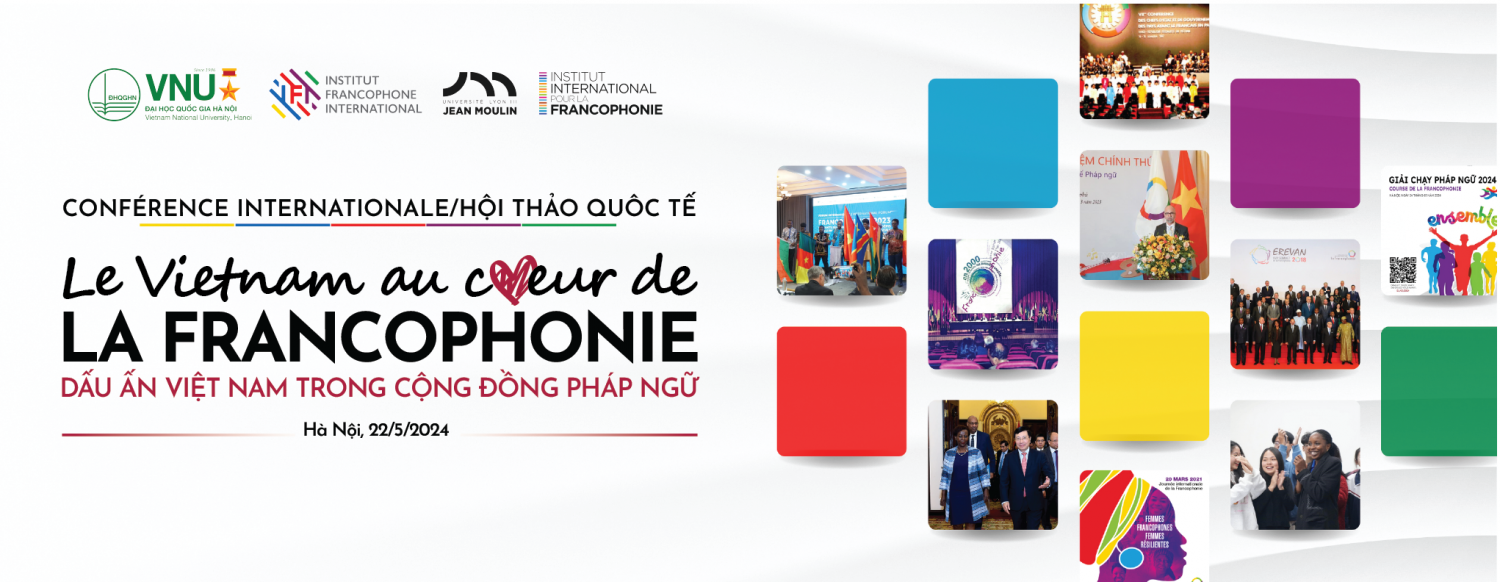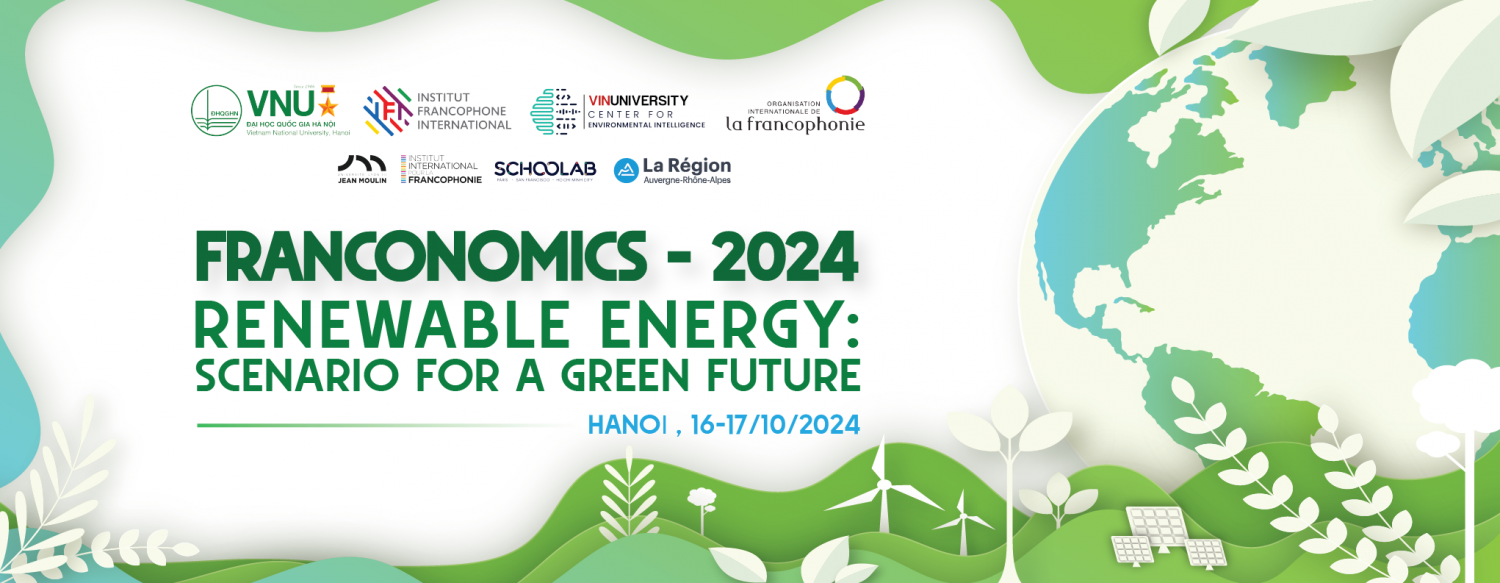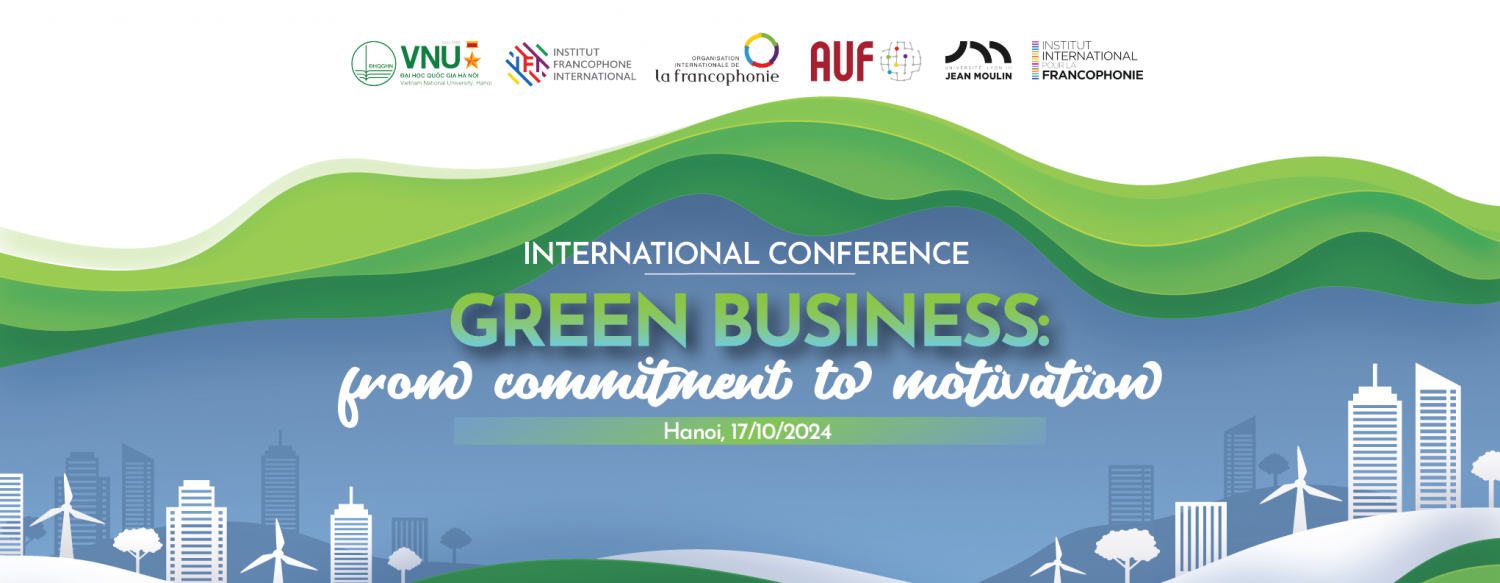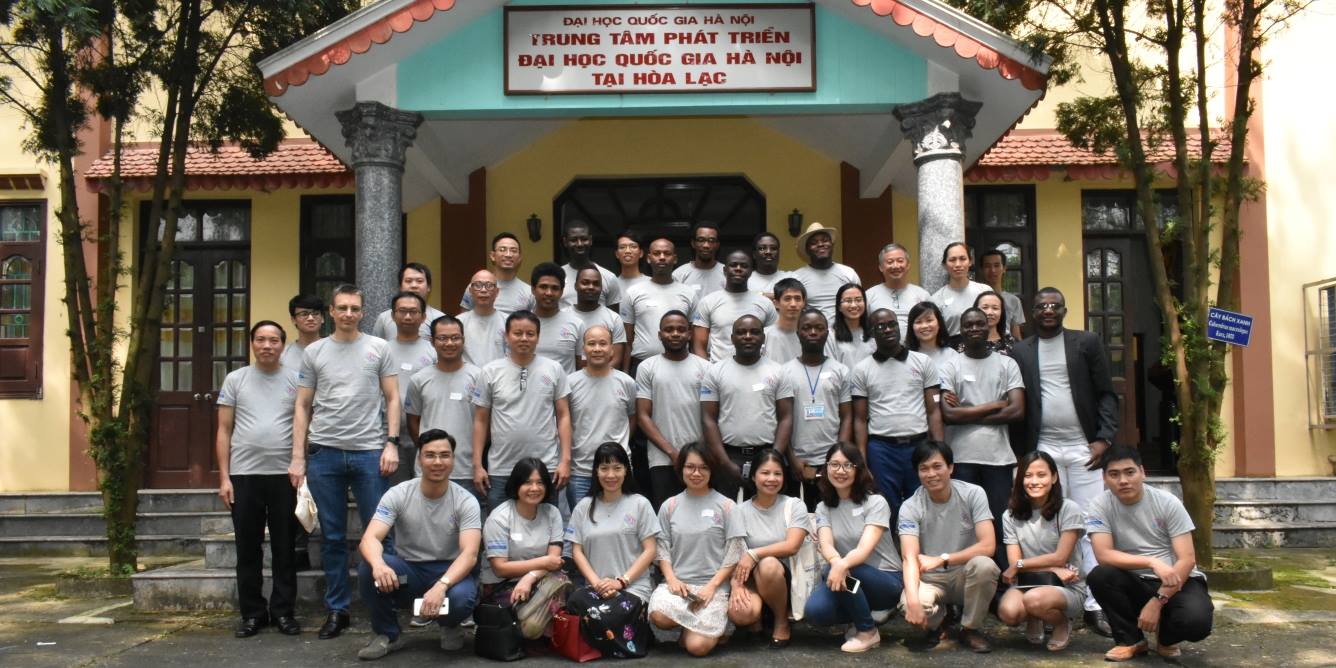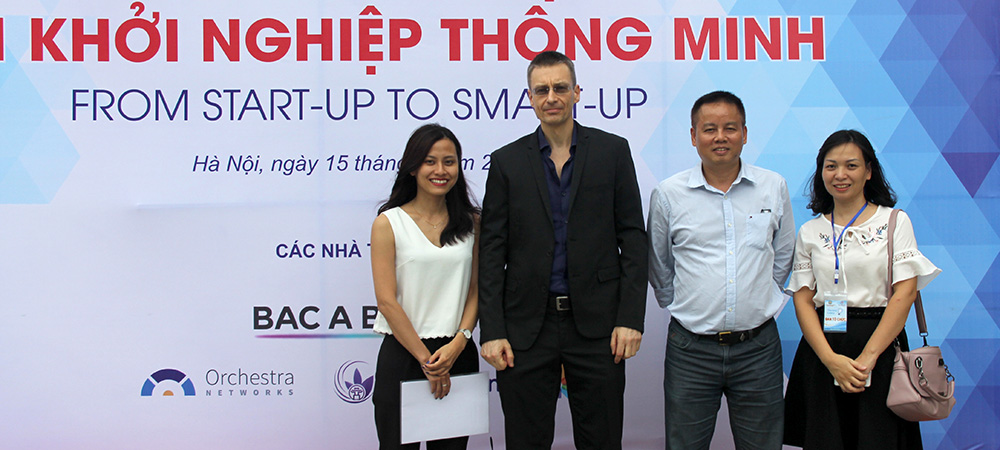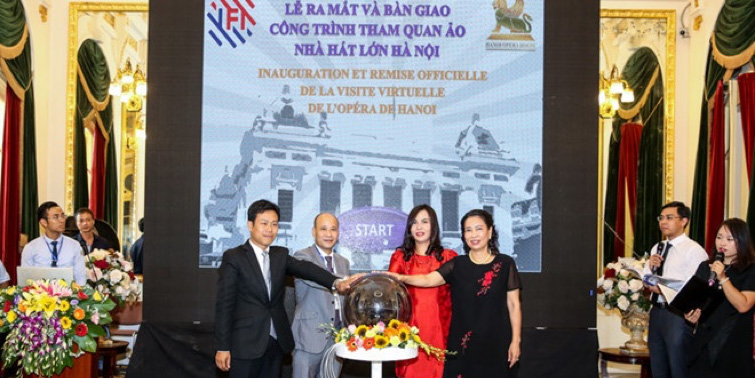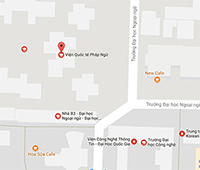International conference “Digital transformation and human security”
THUrsday - 06/07/2023 15:33The International Francophone Institute (IFI), Vietnam National University, Hanoi (VNU), the International Organization of the Francophonie (OIF), the Francophone University Agency (AUF), and the International Institute for Francophone Studies (2IF) - Jean Moulin Lyon 3 University co-organize the International conference entitled "Digital Transformation and Human Security" held on 18 October in Hanoi and online platform. This event is a part of Franconomics-2023 under the topic "Digital humanity: Opportunity and challenges in the digital transformation process".
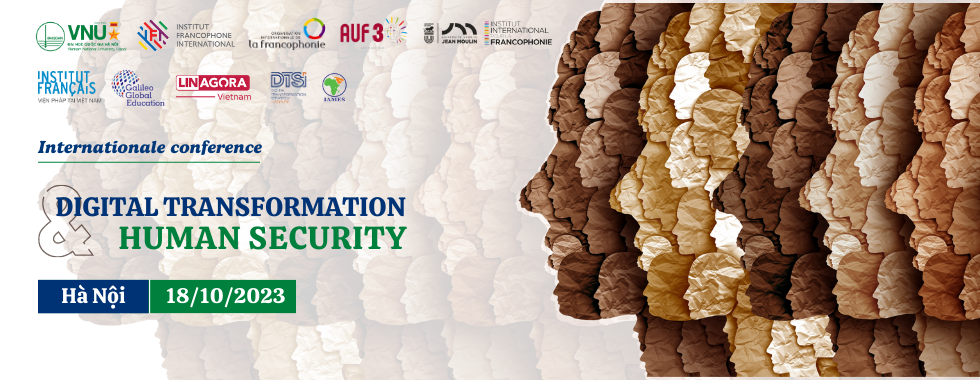
GENERAL INTRODUCTION
The “human security” phrase was first used by the United Nations Development Programme (UNDP) in 1994 in the annual Human Development Report – which is considered the most comprehensive document that mentioned the concept of human security. Herein, the UNDP made a double breakthrough compared to the traditional viewpoint on human security, particularly: (i) human security’s purpose is to re-navigate individuals as main subjects of the security rather than countries; (ii) break the opinion and the viewpoint on security only focus on military matters. Therefore, the UNDP proposed the concept of human security with seven constituent elements: (1) economic security, (2) food security, (3) health security, (4) environmental security, (5) personal security, (6) community security and (7) political security.[1]
Human security has a vital position in four essential security fields, along with country security, public security, and non-traditional security.[2] Human security and human security assurance are always the first concerns of countries, including Vietnam, thereby, is not only the status of no violent conflict, but also consist of human right, good government, chances of accessing education, health care, assuring each person has the opportunity and choice to promote their strength.[3] Countries always define human as the goal, as well as the motivation for development, or in other words, human is the center and the most essential factor in the development process. Human security is vital to the stability, prosperity, and growth of each country and its people.
The fluctuations in international security nowadays elucidate the category of human security; the modifiable factors have a profound effect and impact on human security. Thus, digital technology is considered one of the most concerning problems which result in digital transformation. Digital transformation not only brings chances but also poses challenges to the development of human security in countries and territories. Under the great impact of the globalization trend in common and digital transformation in particular, human security is closely related to other security contents. The current context shows that the cooperation between countries and people is necessary to create a safe environment, not only for the people inhabiting their territories but also to contribute to the assurance of human security on a global scale.
CALL FOR PAPERS
For the purpose of discussing, sharing research results, experiences and academic profession regarding human security in the context of digital transformation, The Organization Committee cordially invites scientists, researchers, specialists, lecturers… to participate and contribute content for the conference. Quality papers will be posted in the DAAS-2023 Proceedings of Diderot Advanced Academic Seminars (number ISBN and ISSN 2734-9969), and outstanding papers will be published in the Francophonie in Asia-Pacific science publication (international ISBN and ISSN 2525-2488).
Topics of the article include but are not limited to the following:
- Clarifying the concept of “human security”, factors which contribute and affect on human security and human security in the age of digital;
- Forms and threats to human security;
- Comparing human security to country security and other categories;
- Enquiring subjects and elements which assure and supply human security;
- Risks and factors that affect human security;
- The issue of human security assurance in the context of fluctuations currently;
- Policies and the relationship between countries in clarifying the connection between digital transformation and human security;
- The difference in context and cultural aspects in the relationship between digital technology transformation and human security;
- Millennium Development Goals (MDGs) associates with digital transformation and human security;
- International experience to Vietnam and valuable experience in human security;
- International instruments of human security assurance;
- Current policies, solutions, and proposals to complete fundamental goals of human security which the United Nations proposes;
- International collaboration to assure human security on a global scale.
Deadline for submission of proposals and full text of the paper:
- Deadline for proposals submission: 25 September 2023
- Deadline for full text submission: 15 October 2023
Rules for the proposal and the full text of the thesis:
- Proposal (article title, name of subsection, keywords): no more than 500 words
- Full text (not including title, summary and keywords): no more than 5000 words
- The full text must be composed by .docx format, with no space, follow by author’s name, telephone number and working agency.
- Article form: The article is presented with font size 13, single line spacing, uses Times New Roman font. Justify: up 2 cm; down 2 cm; right 2 cm; left 3 cm. All pages, images, tables must be numbered clearly and precisely.
- Languages: Vietnamese, English, French.
Addresses and contacts for submission:
- Email for submission: anhthu.dao@vnu.edu.vn (cc: brain.ifi@vnu.edu.vn)
- Phone numbers: 0243 745 0173 or 0976 181 193 (Ms. Ngoc)
- Address: International Francophone Institute, E5 building, Vietnam National University, Hanoi, 144 Xuan Thuy, Cau Giay, Hanoi.
[1] United Nations Development Program, "New Dimensions of Human Security," in Human Development Report 1994, p.23, (http://hdr.undp.org/reports/global/ 994/en/pdf/hdr_1994_ch2.pdf)
[2] DANG Xuan Thanh, DAO Thi Minh Huong: Bảo đảm an ninh con người Việt Nam trong bối cảnh toàn cầu hóa và hội nhập quốc tế, Nxb Khoa học xã hội (Vietnamese Human security in the context of globalization and international integration), Hanoi, 2016, pg.32.
[3] Commission on Human Security, "Human Security Now," New York, 2003, p.4
Newer articles
Older articles
News
- The Future of Banking Innovation: The Next Generation Core
- IFI Participated in the Career Orientation and Enrollment Consultation Day 2024
- Opening Ceremony of the Short-Term Software Tester Course (2023-2024)
- Workshop "Emotional Intelligence in the Workplace"
- IFI international students perform the song "Ms. Afrika Wakes Up" on the Vietnam Defense Television channel




